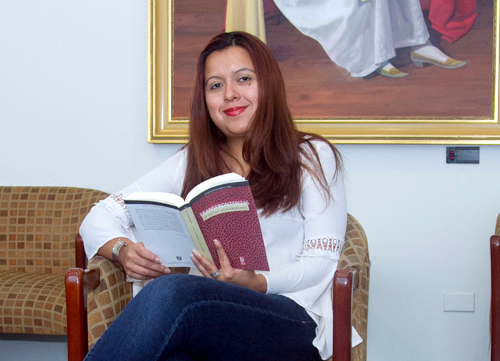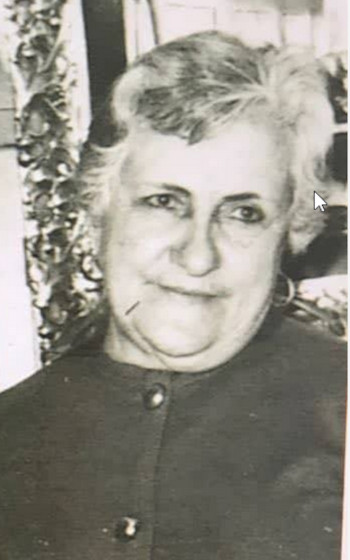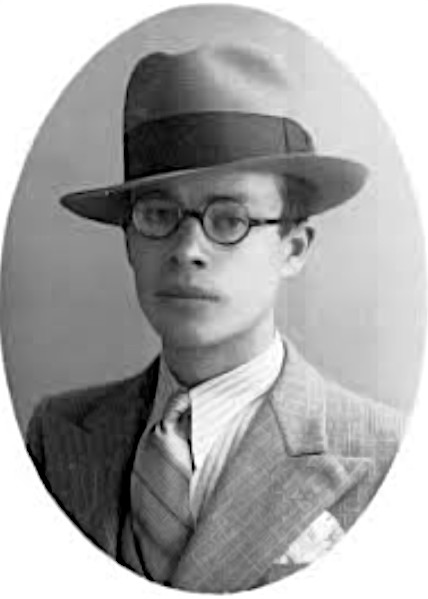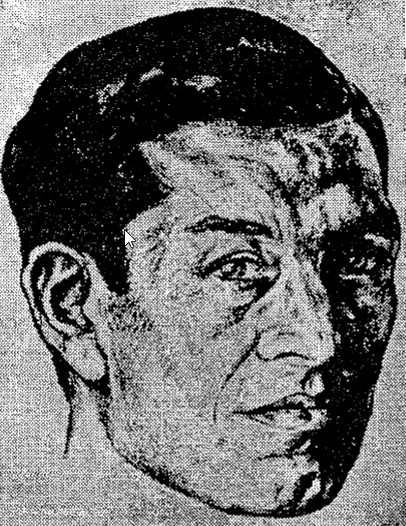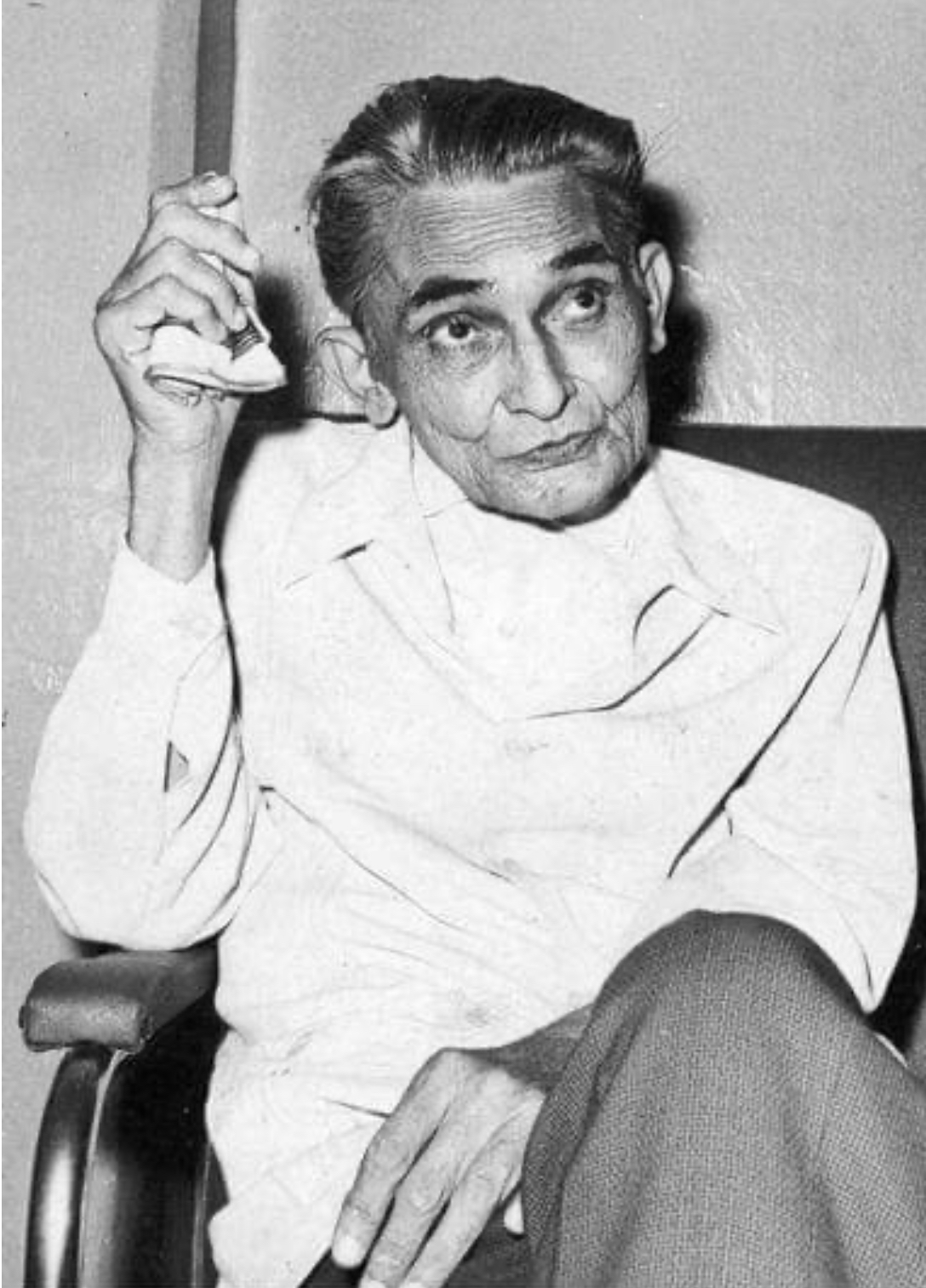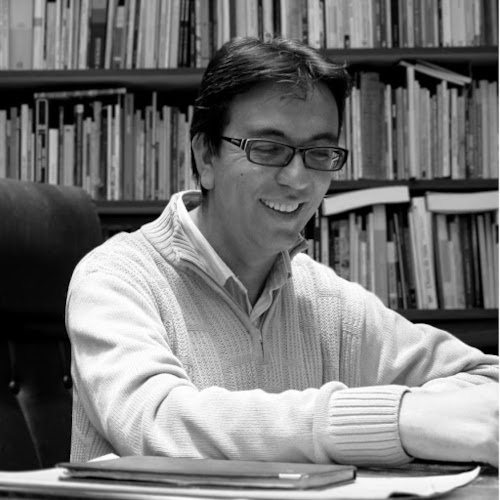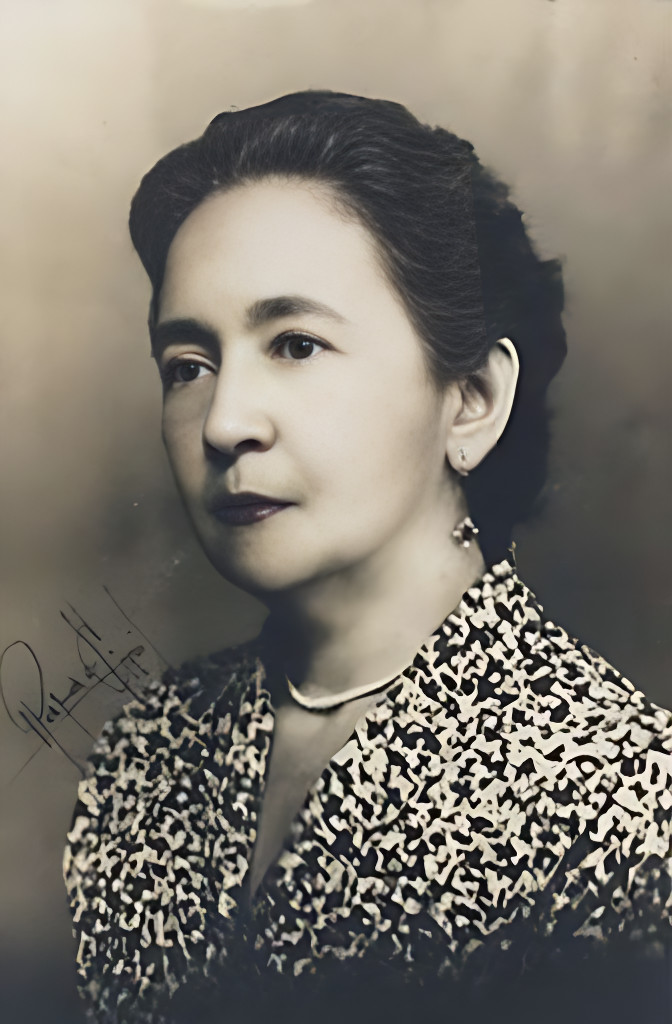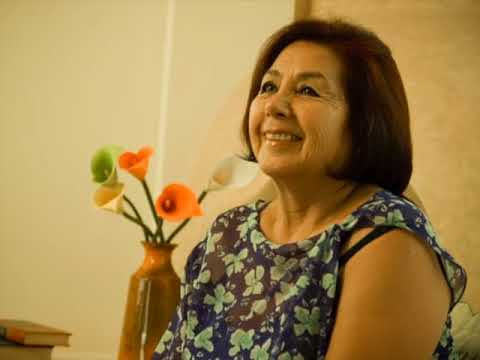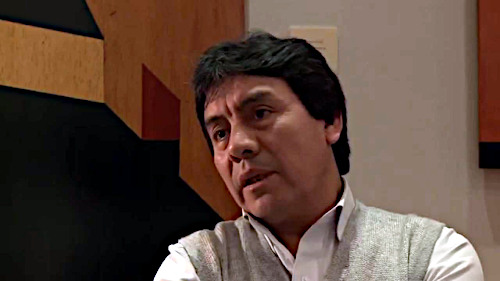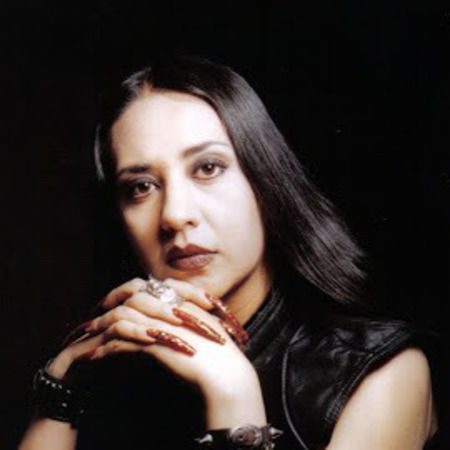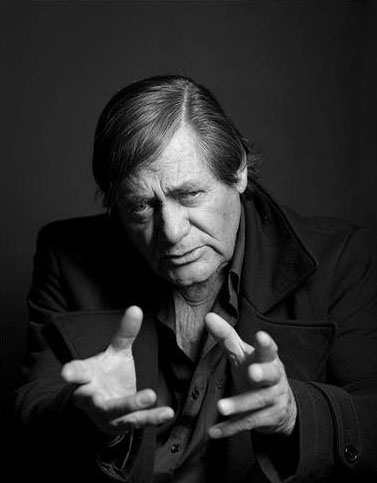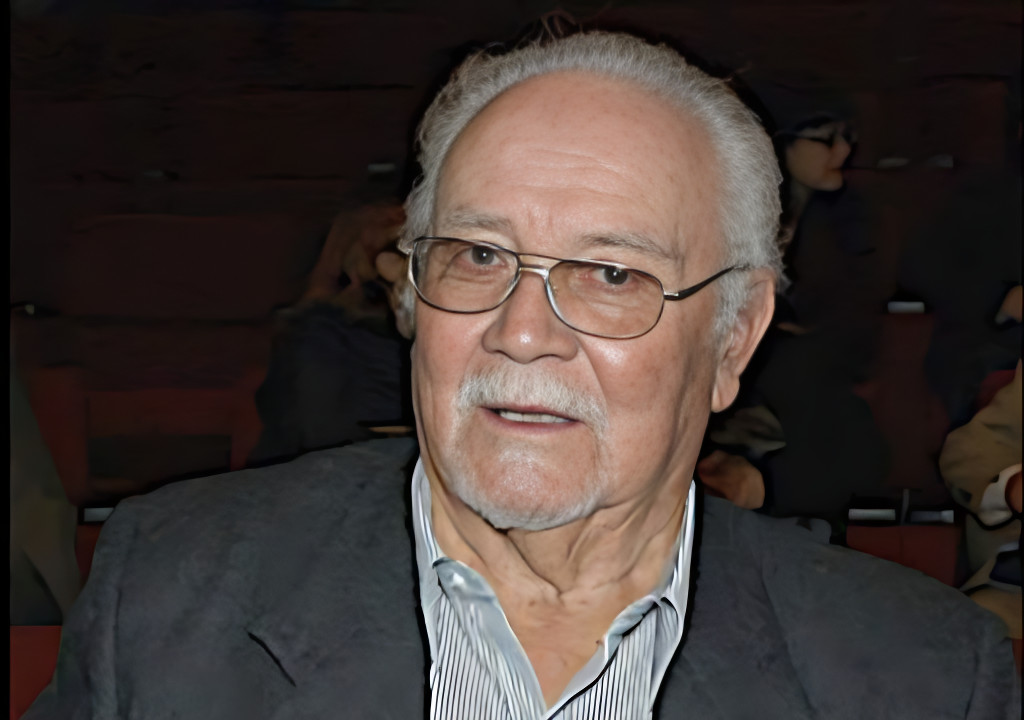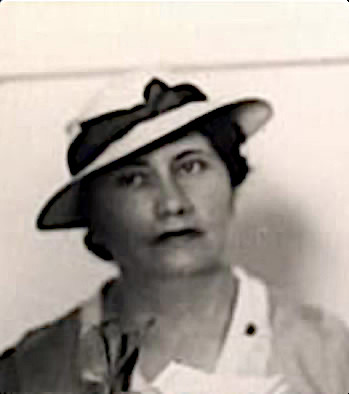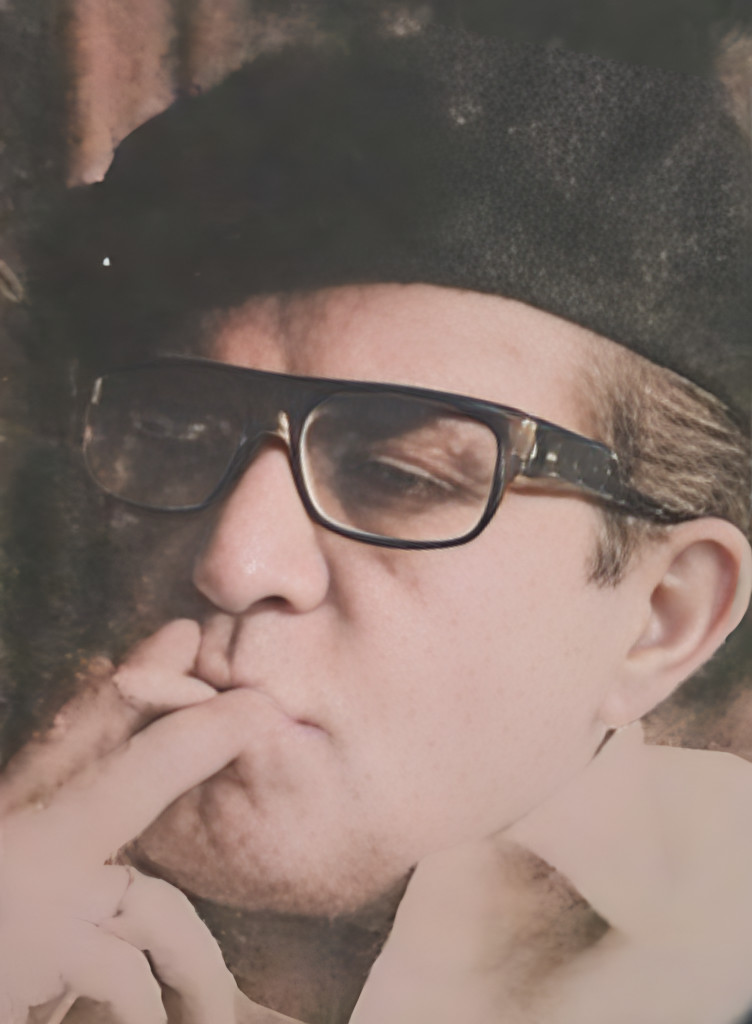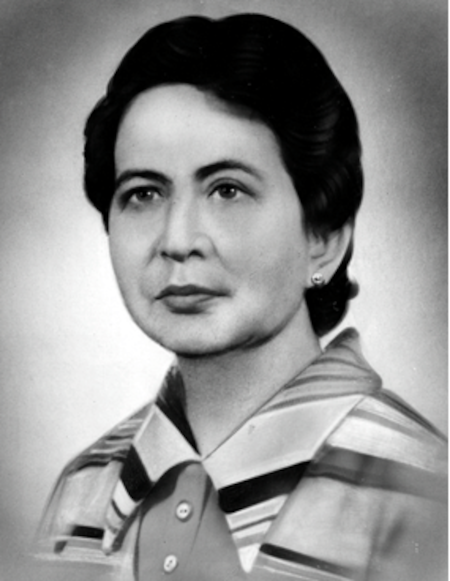Ana Minga (Loja, 1984) is an Ecuadorian journalist, poet and short story writer. She has published five books of poetry. Her book entitled “Tobacco Dogs / Perros de Tabaco” (2013) is an English translation of her poems by Alexis Levitin, published in a bilingual edition by Bitter Oleander Press. Her latest and fifth poetry collection, “La Hora del Diablo,” was released in 2018. Her works have been published in Argentina, Mexico, United States, Spain and Italy. She has lived in Quito and currently lives in Cuenca.
Continue reading “Ana Minga”Category: Poets
Benigna Dávalos
Benigna Dávalos Villavicencio (Riobamba, ca. 1910 – Quito, ca. 1960) was an Ecuadorian composer, poet, and lyricist known for her significant contributions to the pasillo genre, a traditional Ecuadorian music style. She is best remembered for writing both the lyrics and music of the renowned pasillo “Ángel de Luz,” which became a classic in Ecuadorian music and was later popularized in Peru as “Rayo de Luz.” Dávalos was a central figure in Quito’s cultural scene, hosting gatherings with renowned musicians and intellectuals. Her legacy endures through her music and evocative lyrics, capturing the emotional depth and melancholic spirit of the pasillo.
Continue reading “Benigna Dávalos”Atanasio Viteri
Atanasio Viteri Karolys (Latacunga, October 29, 1908-1965) was an essayist, novelist, poet, journalist and university professor. He wrote for the newspapers El Día, La Tierra and El Telégrafo. He was four times the director of the School of Journalism of the Central University of Ecuador, vice president of the National Union of Journalists, president of the Press Freedom Commission of the IV Inter-American Press Congress (Bogotá, 1946) and press secretary of the National Assembly of 1945. He is one of the “poets of Elan,” a group of Ecuadorian poets born between 1905 and 1920 representing the neosymbolism or lyrical vanguard movement.
Continue reading “Atanasio Viteri”José Alfredo Llerena
José Alfredo Llerena (Guayaquil, 1912—Quito, 1977) was a distinguished Ecuadorian poet, journalist, fiction writer, art critic, and essayist. A member of the Elan literary group, he is recognized as a key figure in Ecuador’s modernist movement. His most notable work, the poetry collection “Agonía y paisaje del caballo” (1934), features 18 of his poems. In addition to poetry, he wrote the novel “Oleaje en la tierra” (1955) and the short story collection “Segunda vida de una santa” (1953). His contributions to nonfiction include “Aspectos de la fe artística” (1938) and “Ecuador, perfil de su progreso” (1960).
Continue reading “José Alfredo Llerena”Enrique Segovia
Enrique Segovia Antepara (Guayaquil, 1901-Guayaquil, December 6, 1967) was an Ecuadorian poet. Known for his work, “América,” published in 1939, Segovia had a tumultuous life marked by addiction to morphine, cocaine, and alcohol. Rodolfo Pérez Pimentel, a prominent chronicler of Guayaquil, recalled seeing Segovia in their neighborhood during his childhood, describing him as a pale, thin, and poorly dressed figure resembling a zombie. According to writer José Ayala Cabanilla, Segovia was frequently spotted wandering the streets barefoot, clad in tattered clothing, under the influence of drugs or alcohol. To make a living, he would offer his services as a writer of love letters for a sucre each and Quinceañera speeches for 10 sucres each. A few months prior to his death, the Guayas branch of the House of Ecuadorian Culture published “Mis mejores poesías” (My Best Poems), a collection of Segovia’s poems written between 1920 and 1967.
Continue reading “Enrique Segovia”Xavier Oquendo Troncoso
Xavier Oquendo Troncoso (Ambato, 1972) is an Ecuadorian poet, editorial writer, editor and professor. He has published over 11 titles, including poetry, short stories, children’s literature and anthologies of young writers from Ecuador. In 1993 he won the Pablo Palacio Short Story Award and the National Poetry Award. In 1999 the city of Ambato awarded him the Juan León Mera Award for all his literary work. His book “Salvados del naufragio” (2005) is a compilation of his poetry from 15 years of work up to the year in which it was published. His poems appeared in English translation in a book entitled “Poems That Love Me” (2016), translated by Gordon E. McNeer. Some of his poems have also been translated into Italian and Portuguese.
Continue reading “Xavier Oquendo Troncoso”Aurora Estrada y Ayala
Aurora Estrada y Ayala de Ramírez Pérez (Pueblo Viejo Canton, Los Ríos Province, November 17, 1901 – Guayaquil, March 12, 1967) was an Ecuadorian poet, columnist, narrator, educator and politician. She is considered a major figure in Ecuadorian literature. Among her best regarded works are: Himno a la Provincia de Los Ríos, Himno al Colegio Aguirre Abad, and Canto de las Trabajadoras. In 1922 she founded and was the editor in chief of Potreo, a monthly magazine which published some of Ecuador’s best young poets of the time, such as Jorge Carrera Andrade, Hugo Mayo, Francisco Fálquez Ampuero, as well as poets from other countries, such as the future Nobel laureate Gabriela Mistral from Chile. Estrada only published 2 books during her lifetime, Como el incienso (1925) and Tiniebla: veinte trenos y una canción de cuna (1943). An anthology containing many of Estrada’s poems was published by Isabel Ramírez Estrada in Aurora Estrada i Ayala, estudio biográfico-literario y antología (1976). Most of Estrada’s poems were published in magazines and newspapers in and outside of Ecuador which have not yet been collected and published in a “complete” collection.
Continue reading “Aurora Estrada y Ayala”Ana María Iza
Ana María Iza (Quito, 1941-2016) was an Ecuadorian poet, she worked as a journalist, specifically on the radio. Her poems appeared in some of the most important poetry anthologies of Ecuador and Latin America, such as: Poesía Viva del Ecuador (1990), Diccionario de literatura española e hispanoamericana (1993), Joyas de literatura ecuatoriana (1993), and Between the silence of voices (1997). In 2015 she was honored in Poetry in Parallel Zero, an event that brings together great figures of literature to Ecuador for a week. In 2016 she was honored with a medal by the National Assembly of Ecuador.
Continue reading “Ana María Iza”Ramiro Caiza
Victor Ramiro Caiza Guamán (Machachi, April 19, 1963) is an Ecuadorian poet, essayist and cultural promoter. He is the author of over 18 books of poetry and essays. He is the former president of the House of Ecuadorian Culture’s branch in Barcelona, Spain. He has served as secretary of the Association of Poets and Writers of Catalonia, Spain. He founded and was the president of the House of Ecuadorian Culture’s branch in the Mejía Canton of Ecuador. His latest books are Mejía Festivo (2020) and Haikus Cotidianos (2020). Caiza currently lives in Quito, Ecuador.
Continue reading “Ramiro Caiza”Mayari Granda Luna
Mayari Granda Luna (Quito, 1977) is an Ecuadorian poet and a literary critic. Her poetry has appeared in several magazines, including Hoja Verde in Chile and Eskeletra in Quito. Granda Luna has also authored poetry books such as “Palabras con el eje roto” (1995) and “Noctivago” (1998).
Continue reading “Mayari Granda Luna”Antonio Ordóñez
Antonio Ramiro Ordóñez Andrade (Quito, January 23, 1943) is a poet, dramaturg, theater actor and director. He was a founder of the “Tzántzicos” group (1961-1969), actor and director of the Ensayo theater, actor of the Ecuadorian popular theater, director of the School of Dramatic Art of the House of Ecuadorian Culture (2 years), director of the School of Theater of the Faculty of Arts from the Central University of Ecuador (11 years), professor at the Faculty of Arts of the Central University (32 years), member of the Ecuadorian Institute of Theater, member of the General Board of the House of Ecuadorian Culture. Many of his early poems were published in Pucuna magazine in the 1960s. In 2014 the House of Ecuadorian Culture in Quito published his only book of poetry El demonio en el fondo de los ojos.
Continue reading “Antonio Ordóñez”Alfonso Murriagui
Alfonso Murriagui Valverde (Quito, 1929-January 19, 2017) was an Ecuadorian poet, fiction writer, dramatist, journalist, and an exponent of communism. Murriagui‘s poetry is marked by political and revolutionary ideology. For several years he was an editor of En Marcha, the official weekly periodical of the Central Committee of the Communist Marxist Leninist Party of Ecuador. In 1961 he was a founding member of the Tzántzico group of the 1960s. That same year he began writing for Pucuna magazine. In 1965 he became vice president of the Association of Young Writers of Ecuador. He was the director of public relations of the Luís Vargas Torres de Esmeraldas Technical University from 1972-1976. He was the director of cultural diffusion of the Philosophy Department of the Central University of Ecuador from 1985-1992). During the last 15 years of his life he was the editor of the culture section of the leftist weekly periodical Opción.
Continue reading “Alfonso Murriagui”Adelaida Velasco Galdós
Adelaida Velasco Galdós (Guayaquil, 1894 – December 26, 1967) was an Ecuadorian writer, feminist, and humanist. She is recognized her dedication to Catholic Christian feminism. In 1932, Velasco co-founded the Legion of Popular Education alongside writer Rosa Borja de Icaza. This organization aimed to promote education and empower women in Ecuador. Additionally, in 1936, she represented Ecuador in the Inter-American Commission of the “Women’s International League for Peace and Freedom” in Washington D.C. Starting in 1939, Velasco initiated a campaign to nominate Gabriela Mistral, a renowned Chilean poet, for the Nobel Prize in Literature. Her efforts proved successful when Mistral became the first Latin American author to receive the prestigious award in 1945. Mistral later acknowledged in various interviews that it was Adelaida Velasco who had originally proposed her nomination for the Nobel Prize.
Continue reading “Adelaida Velasco Galdós”Eugenio Moreno Heredia
Eugenio Moreno Heredia (Cuenca, 1926—1997) was a poet, fiction writer, nonfiction writer, literary critic, university professor, magistrate judge and member of the communist party. He belonged to the literary groups “La Madrugada,” “Elan,” and “Tzánticos.” He was the son of the poet Alfonso Moreno Mora. His poems have been translated into several languages and published in anthologies.
Continue reading “Eugenio Moreno Heredia”Fanny Caicedo
Emma Fanny Caicedo Mier, also known as Fanny Caicedo de Cobo (Yaguachi, 1932 – circa 2001), was an Ecuadorian poet and teaching professor. Her books include Perlas Azules and Cantares del Silencio. She was a councilor of the Tungurahua Province. She wrote for several newspapers in the city of Ambato, including La Crónica, Avance, El Heraldo and others.
Continue reading “Fanny Caicedo”
